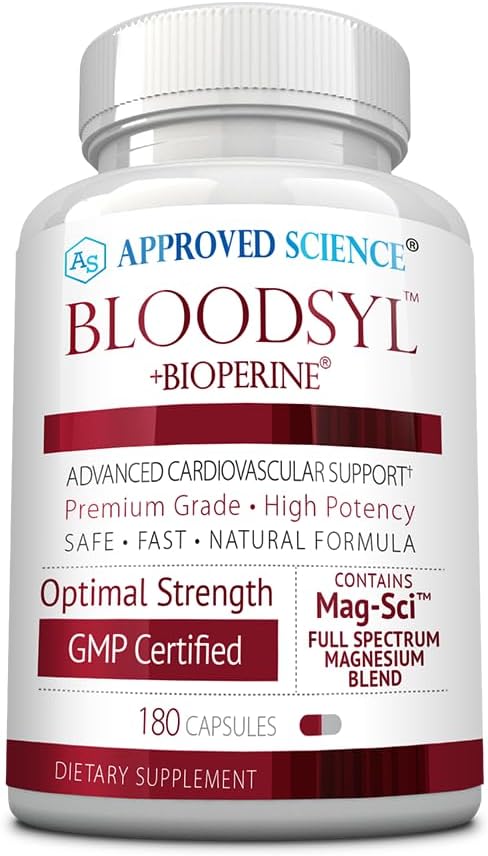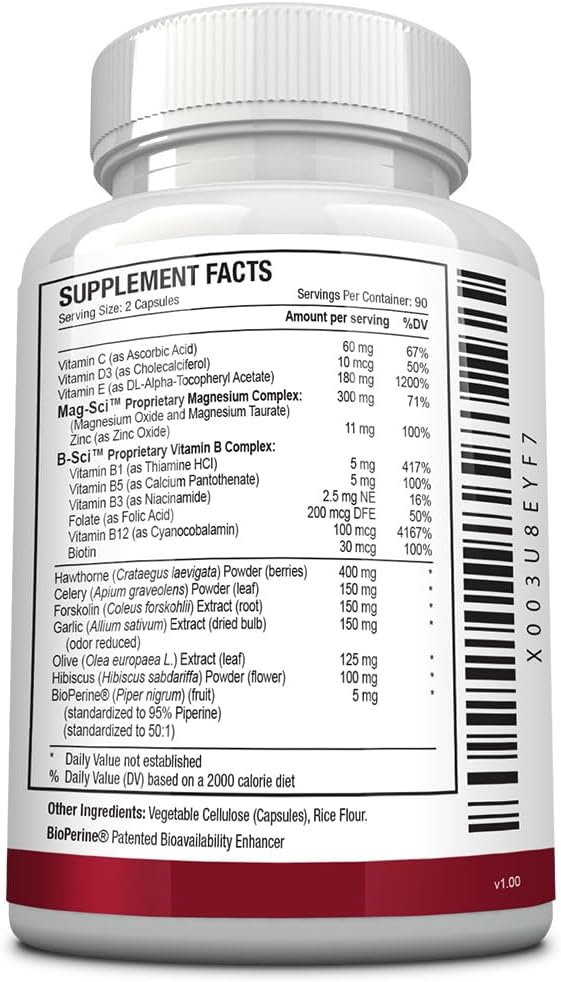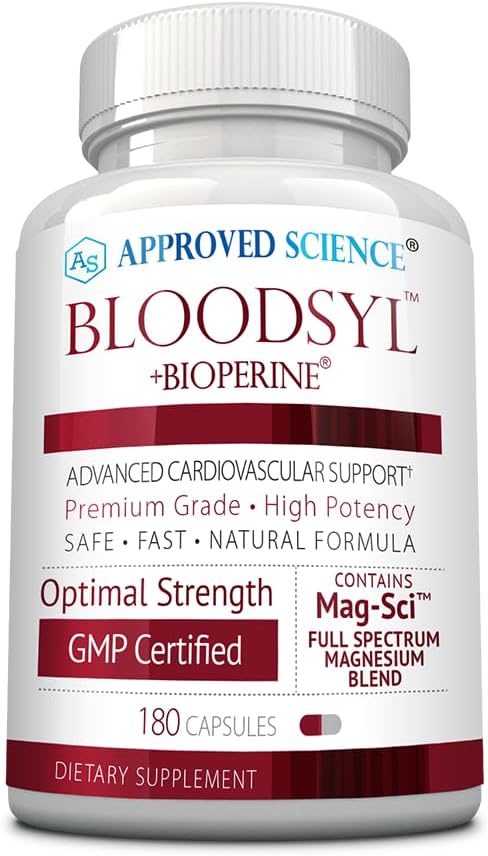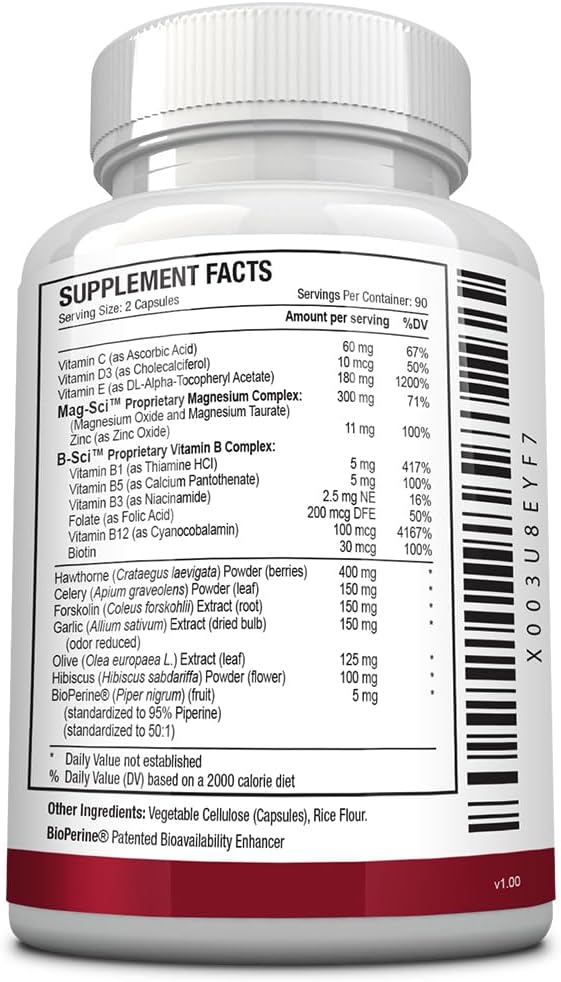

Bloodsyl Customer Reviews
Although there are not as many customer reviews as we would expect for a supplement that has been around as long as Bloodsyl, they are mostly positive.
60% of Bloodsyl reviews on Amazon gave five stars, which is not the highest percentage for a supplement but still okay. Of the lower-rated reviews, customers reported a lack of noticeable effects.
We're not all that surprised by the mix of reviews. Given the low doses in Bloodsyl, we'd expect inconsistent results.
Our guess is that satisfied customers were mostly the ones dealing with low-intensity blood pressure issues and mild complaints. There are some good ingredients in Bloodsly, so it's likely to have some mild positive effects but simply won't be as effective as a properly dosed supplement.
Bloodsyl Ingredients
Approved Science have certainly packed a lot of different ingredients into Bloodsyl, but as we've already mentioned, most of them are under-dosed. Ignoring doses for the moment, we're going to examine the ingredients in Approved Science's Bloodlys blood pressure supplement and explain how they are intended to work (when provided at the right doses!):
Let's start with the good, the vitamins and minerals (with the excepion of magnesium are all fairly dosed.
Vitamin C: Vitamin C helps lower blood pressure by promoting the relaxation of blood vessels, allowing for better blood flow.
Vitamin D: Vitamin D supports cardiovascular health by helping to regulate blood pressure and reduce inflammation.
Vitamin E: Vitamin E may help with lowering cholesterol by preventing the oxidation of LDL cholesterol, which can lead to plaque buildup in arteries.
Magnesium Oxide (MAG-SCI Blend): Magnesium oxide can help lower blood pressure by relaxing blood vessels and improving blood flow. The problem is that magnesium oxide isn't very well absorbed, meaning it's not going to do a great deal here. It is also important to note that as you won't absorb about 60% of it, you shouldn't count it towards your RDI in the same way it's listed on the bottle.
Magnesium Taurate (MAG-SCI Blend): Magnesium taurate may support cardiovascular health by promoting healthy blood pressure levels and heart function.
Zinc: Zinc contributes to cardiovascular health by supporting normal heart function and helping to maintain healthy blood pressure levels.
Vitamin B1 (Thiamine) (B-SCI Blend): Vitamin B1 may help lower blood pressure by improving endothelial function and reducing inflammation.
Vitamin B5 (Pantothenic Acid) (B-SCI Blend): Vitamin B5 supports cardiovascular health by helping to lower LDL cholesterol and increase HDL cholesterol levels.
Vitamin B3 (Niacin) (B-SCI Blend): Vitamin B3 can help lower cholesterol by decreasing LDL cholesterol and triglyceride levels while increasing HDL cholesterol.
Vitamin B12 (B-SCI Blend): Vitamin B12 supports cardiovascular health by helping to reduce homocysteine levels, which can be a risk factor for heart disease.
Vitamin B9 (Folate) (B-SCI Blend): Folate supports cardiovascular health by helping to lower homocysteine levels and promote healthy blood flow.
Biotin (B-SCI Blend): Biotin may support cardiovascular health by helping to maintain healthy cholesterol levels.
And now, where everything goes wrong. Hawthorne at 400mg isn't bad, but everything else is at about 10% of what you'd want it to be within the effective range, with the exception of bioperine. But as that only enhances absorbtion of the rest, that's not overly helpful.
Hawthorn: Hawthorn may help lower blood pressure by dilating blood vessels and improving heart function. 400mg is fine here.
Celery: Celery may help lower blood pressure by acting as a diuretic and reducing fluid volume in the body. The studies have this at over 1000mg, whereas the dosage is at 150mg. Not much use.
Forskolin: Forskolin may help lower blood pressure by relaxing blood vessels and increasing the strength of heart contractions.
Garlic Extract: Garlic extract may help improve cardiovascular health by lowering cholesterol levels and reducing blood pressure. Similar story to Celery, well below the clinical trials.
Olive Leaf Extract: Olive leaf extract may support cardiovascular health by helping to lower blood pressure and reduce LDL cholesterol levels. Here we have 100mg, wheras the trials have it at between 500mg, and 1000mg, thus it's far too underdosed to be considered effective.
Hibiscus: Hibiscus may help lower blood pressure by acting as a natural diuretic and improving the elasticity of blood vessels. Still below the clinical trials at 100mg, but not by as much, could have some effect.
BioPerine (Black Pepper Extract): BioPerine may enhance the absorption of other nutrients, potentially improving their overall cardiovascular benefits.
Bloodsyl by Approved Science Pros & Cons
Pros
- Contains lots of ingredients
- May reduce high cholesterol
- May have a slight impact on high blood pressure
- No reported side effects
Cons
- Most ingredients are under-dosed
- Ingredient doses not supported by science
- Very expensive considering its quality
- Not the most effective blood pressure supplement available
- Choosing a selection results in a full page refresh.
- Opens in a new window.

